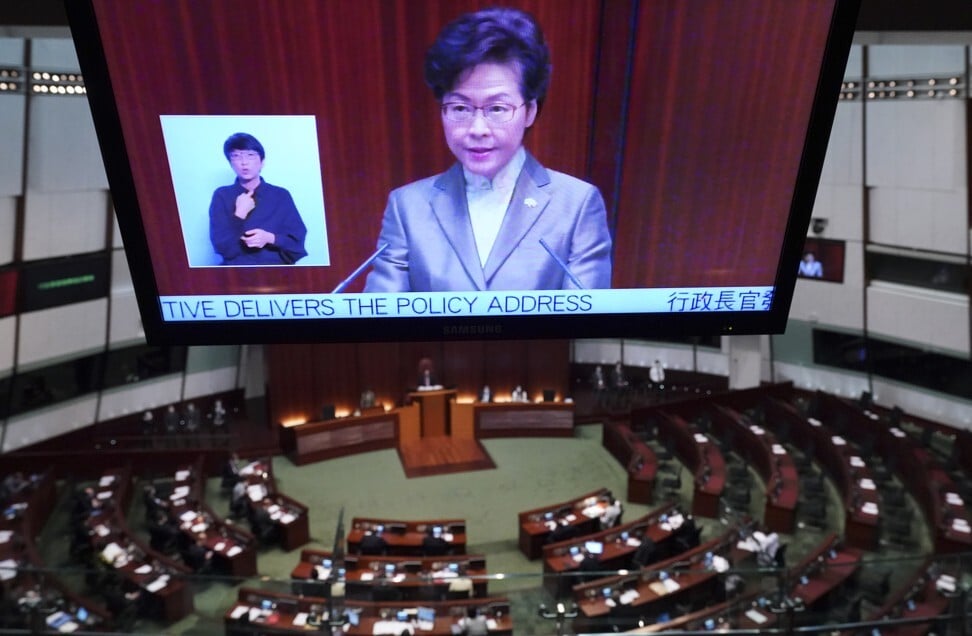
Hong Kong widens Connect stock links for global funds to tap Star Market, tying city’s financial future closer to China’s heft
- China-domiciled investors will be able to invest in pre-revenue biotechnology companies listed on Hong Kong’s stock exchange
- Global funds will be allowed to access shares on Shanghai’s Star Market via an expanded Stock Connect scheme from Hong Kong
Hong Kong will broaden its cross-border investment channels with mainland China’s stock exchanges, offering the city as the stepping-off point for international funds to gain access to one of the world’s best-performing capital markets.
“It is always good to extend the investor base in view of more innovative companies on the Star Market,” said Tom Chan Pak-lam, chairman of the Institute of Securities Dealers, an industry body for local brokers. “Biotech is a hot industry in Hong Kong and China, so any addition of these companies to the Stock Connect will encourage more mainland investors to trade in Hong Kong.”
The initiative ties Hong Kong’s economic future closer to mainland China’s market size and financial muscle, after a tumultuous year that has seen the city paying the political price for its role and place in Chinese politics. It’s also a boon for Hong Kong’s role as China’s international financial centre, as it helps channel capital to an economy with a closed capital account and non-convertible currency.

“The government’s efforts to support the further expansion of our mutual market access programmes … will help ensure the continued resiliency, vibrancy and attractiveness of Hong Kong’s capital markets,” said Laura Cha Shih May-lung, chairwoman of the bourse operator Hong Kong Clearing and Exchanges Limited (HKEX) in a statement after Lam’s address.
Hong Kong’s stock market pared gains after Lam’s address, delivered after she obtained the green light from Chinese regulators following her visit to Beijing earlier this month, with the benchmark Hang Seng Index giving up most of its 450-point advance, while the China Enterprise Index that tracks mainland companies slipped into the red.
Investors who bought Alibaba in anticipation that the world’s largest e-commerce company would be included in the Connect schemes were left disappointed. Alibaba raised US$13 billion in Hong Kong in November last year in a secondary listing.
“It is disappointing, as adding Alibaba and other secondary-listed companies would have been an important move to attract more US-listed companies to list in Hong Kong,” said Louis Tse Ming-kwong, managing director of Hong Kong-based brokerage Wealthy Securities. “The delay may be due to [new] regulations related to these tech giants. When all is sorted out, Alibaba and others would be able to be added to the cross-border investment scheme.”

“It will open up the vast investors market in China for biotech companies,” said Clement Chan, managing director of the accounting firm BDO, adding that the move makes it more attractive for China-based biotech companies to list in Hong Kong, as they now have access to a bigger capital pool.
Lam’s financial liberalisation and capital market initiatives did not end there. The HKEX is working on a plan to launch a new settlement platform called Synapse in 2022 to help international investors settle mainland Chinese trades according to the country’s settlement requirements. Synapse will standardise and streamline settlement workflows for international investors when they trade mainland shares listed in Shanghai or Shenzhen through the two stock connect schemes linking these markets with Hong Kong.
The Hong Kong exchange is exploring possibilities with the Securities and Futures Commission (SFC) to relax investment restrictions in real estate investment trusts (Reits), such as letting such trusts with property still under construction to list in Hong Kong, according to a government source.
The SFC and its regulatory counterparts in the mainland would set parameters for wealth management products that could be sold across borders, rather than approving products one-by-one, the source added. If the wealth management products meet the goalposts, then they could be sold across the Greater Bay Area once approved.
“We are pleased to note that the government will expedite the implementation of the Wealth management Connect scheme,” the Hong Kong Investment Funds Association said after the policy address. The policies and incentives outlined to nurture the growth of Reits and family offices “are very helpful and pivotal to further reinforce Hong Kong’s position as an asset management centre,” it said in a statement.


